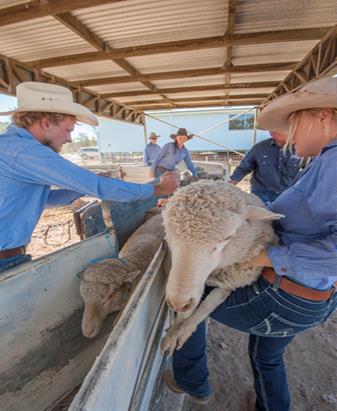WHILE it rarely causes clinical disease in livestock, Q fever is an infectious disease which can cause serious illness in humans.
 Producers, farm workers, agents and other people exposed to cattle, sheep and goats are the most likely to be impacted.
Producers, farm workers, agents and other people exposed to cattle, sheep and goats are the most likely to be impacted.
Q fever is caused by a bacterium and may present in some people as a mild infection similar to the flu. But the severity of the illness varies and others can develop serious symptoms involving the lungs, liver, heart or brain. About 10 percent of people seriously ill with Q fever don’t recover within 12 months.
Common symptoms include:
- rapid onset of high fever and profuse sweats
- extreme fatigue, muscle and joint pain
- severe headache and photophobia.
Who is at risk?
Abattoir workers, producers, saleyard workers, shearers, animal transporters and others exposed to cattle, sheep and goats or their products.
How do you catch it?
It is very easy for humans to catch Q fever. Q fever can survive in air, soil, water and dust, and also on items such as wool, hides, clothing, straw and packing materials. Animals are infected by inhaling or ingesting infected materials such as urine, milk, faeces or afterbirth from infected animals.
People generally catch Q fever through:
- ingestion of infected dust particles
- contact with infected animal waste products
- contact with soiled straw or wool
- handling of infective placental tissue such as afterbirth
- consuming infected unpasteurised milk.
Can it be prevented?
Vaccination is highly recommended for people working in the livestock industry.
You can also help reduce the spread of Q fever by:
- washing hands and arms in soapy water after handling animals or carcases
- washing animal body fluids from work sites and equipment
- minimising dust and rodents in slaughter and animal housing areas
- keeping yard facilities from sheep and cattle well away from domestic living areas
- removing protective and/or other clothing that may carry infectious material before returning to the home environment
- properly disposing of animal tissues including afterbirth.
For more information, visit qfever.org. This website provides access to forms and resources, a list of vaccinators and FAQs on the disease.
Victorian producers can also contact Livestock Health & Biosecurity Victoria’s Catherine James or Kimberley Henman on 1300 020 163 or email [email protected]
Source: MLA

HAVE YOUR SAY